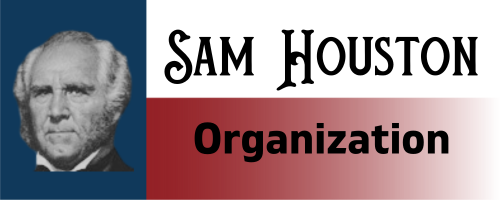The Raven

Sam Houston’s relationships with Native Americans held particular significance throughout his life, with the Cherokee tribe bestowing upon him the revered name “The Raven.”
Houston’s early exposure to Native American culture during his childhood in Tennessee profoundly influenced his perspective and approach towards indigenous peoples. Living among the Cherokee tribe, he developed a deep appreciation for their customs, traditions, and way of life.
Throughout his political career, Houston demonstrated a profound empathy and understanding for Native Americans. As a representative of Tennessee in the United States House of Representatives, he staunchly advocated for their rights and interests. In direct opposition to the Indian Removal Act of 1830, which forcibly displaced Native American tribes from their ancestral lands, Houston voiced his concerns about the detrimental impact such policies would have on their communities.

When Houston assumed leadership in the Republic of Texas as its president, his commitment to protecting Native American rights persisted. He actively pursued a policy of peaceful coexistence and cooperation with indigenous tribes within Texas’ borders, recognizing their sovereignty and the importance of maintaining respectful relationships based on mutual understanding and dialogue.
An exceptional testament to Houston’s dedication was his involvement in negotiating treaties. He sought fair agreements that safeguarded the land and cultural rights of the tribes while fostering economic collaboration. The 1844 Treaty of Tehuacana Creek stands as a notable example, establishing peace and trade relations between the Republic of Texas and numerous tribes, including the Comanche, Caddo, and Waco.

Houston’s personal connections with Native American leaders also bolstered his reputation as a steadfast friend and ally. Notably, he formed a lasting bond with Chief Bowles of the Cherokee, who had fought alongside Houston during the War of 1812. Despite political and cultural disparities, Houston maintained a profound respect for Chief Bowles, acknowledging his invaluable contributions to both Native American and American society.
While Houston’s relationships with Native Americans generally thrived on mutual respect and empathy, it is important to acknowledge that he was not impervious to the prejudices and prevailing attitudes of his time. Like many individuals during that era, Houston held certain beliefs influenced by notions of Manifest Destiny and American exceptionalism. Nevertheless, his formative experiences and personal connections enabled him to transcend stereotypes and appreciate the profound heritage and contributions of Native American tribes.
In essence, Sam Houston’s relationships with Native Americans were characterized by respect, empathy, and a genuine pursuit of peaceful coexistence. He recognized the imperative of preserving their culture and actively engaged in fair treaty negotiations and trade agreements. Houston’s upbringing among Native Americans and his personal associations with indigenous leaders shaped his understanding, allowing him to cultivate a unique approach towards Native American relations during a transformative period of American history.
